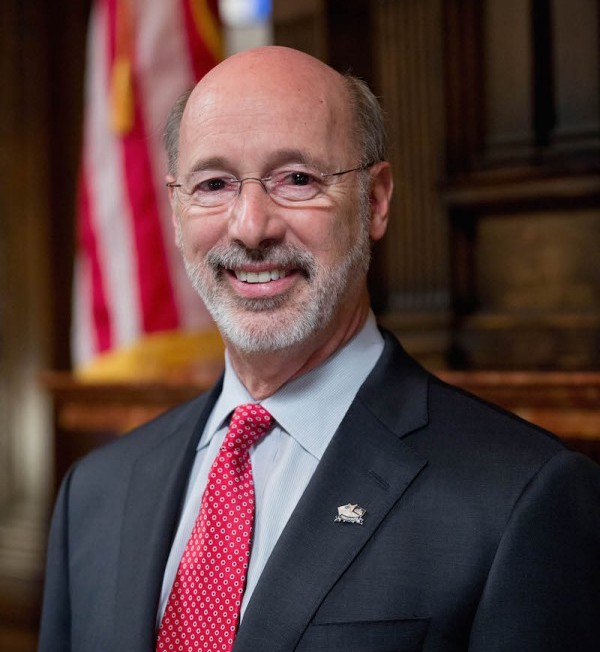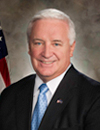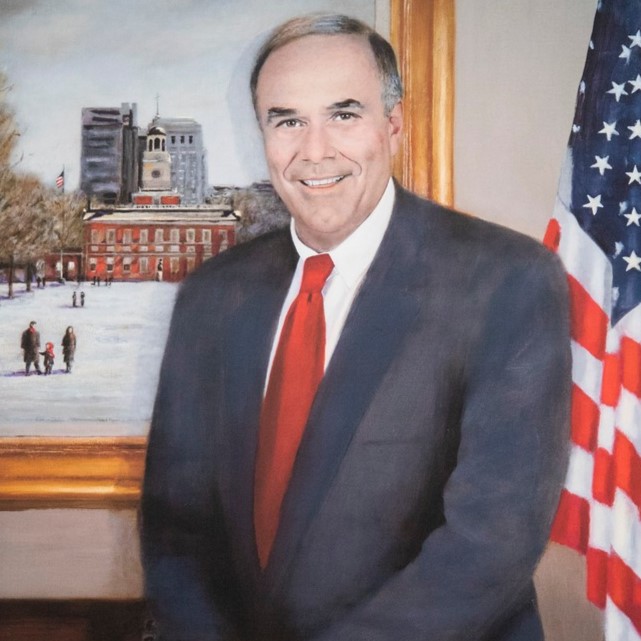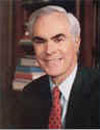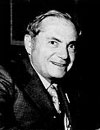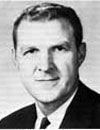Pennsylvania
Gov. William W. Scranton
- January 15, 1963 - January 17, 1967
- Republican
- July 20, 1917
- July 28, 2013
- Connecticut
- Yale University; Yale University Law School
- Married Mary Lowe Chamberlin; four children
- Representative, Ambassador
- Air Force, Army
About
Born in Madison, Connecticut, WILLIAM W. SCRANTON earned a Bachelor of Arts degree at Yale University in 1939. His law studies at Yale were interrupted by World War II, during which he served as an Airport Transport Command pilot with the U.S. Army Air Corps. Discharged with the rank of Captain when the war ended, he remained active with the Air Force Reserve for another twenty years before retiring with the rank of Lieutenant Colonel. After completing his law studies, he began a law practice in the City of Scranton. In 1959 he was appointed a special Assistant to the Secretary of State, whom he later succeeded for a brief period before winning election to the U.S. House of Representatives. He won the governorship of Pennsylvania after serving one term in the House. During Scranton’s governorship, major educational reforms were achieved, including the creation of a community college system, a state Board of Education, and the Pennsylvania Higher Education Assistance Agency to help widen student access to college. Scranton also initiated a program to promote Pennsylvania in national and world markets and to make the state more attractive to industries and buyers of Pennsylvania products and services. During his tenure, Scranton was a member of the National Governors Association’s Executive Committee in 1965 and 1966. While governor, he made an unsuccessful bid for the Presidency. After leaving office, he returned to the private sector for a time in the areas of banking, broadcasting, and manufacturing. He served as a delegate to the state constitutional convention of 1967-68 and in 1968 was chosen by President Richard Nixon to become Secretary of State. He declined the position but accepted a role as a special envoy to the Middle East. His recommendations with respect to U.S. relations with Middle Eastern nations offended the American Jewish community, causing President Nixon to maintain distance from his views. However, following the killing of four Kent State University students by National Guardsmen in 1970, Scranton earned Nixon’s confidence once more as chair of the Commission on Student Unrest, which issued a report that identified the principal causes of campus violence. Scranton also served on the Presidential Price Commission (1971-1972), the U.S. Railway Board (1974-75), the White House Fellowships Commission, the Carnegie Commission on Higher Education, the Urban Institute (as Vice chairman), and the Municipal League (as Chairman). He served on the four-member transition team for President Gerald Ford following Nixon’s resignation. Ford then appointed him U.S. Ambassador to the United Nations, a position in which he served only briefly but with distinction. In 2000, Scranton became the third recipient of the Pennsylvania Historical and Museum Commission’s Pennsylvania Founders Award, bestowed upon living persons who embody the ideals of William Penn in individual rights, religious tolerance, representative government, public support of education, and free enterprise.
Source
Pennsylvania Historical and Museum Commission
Governors of the American States, Commonwealths and Territories, National Governors Association, 1966.


